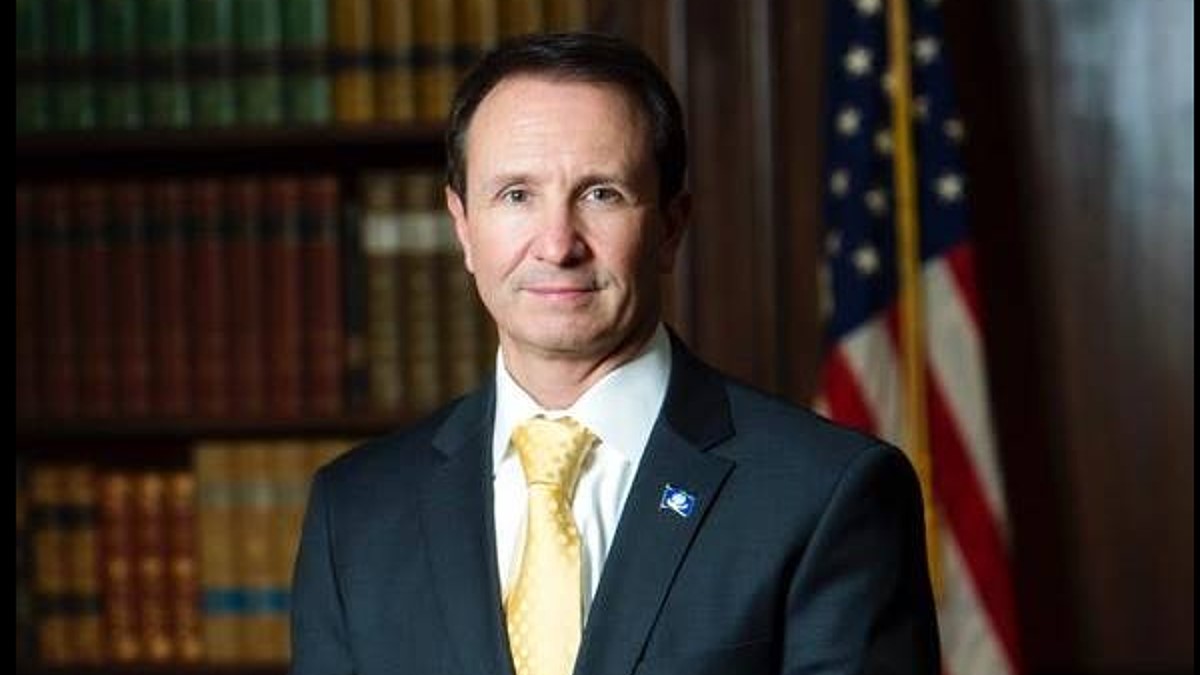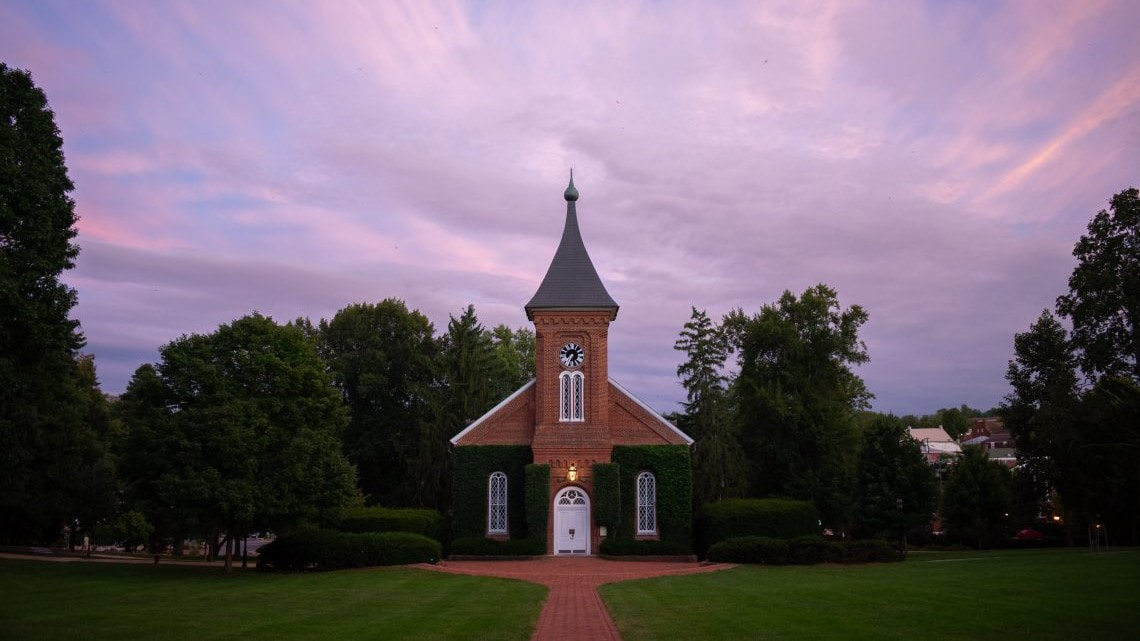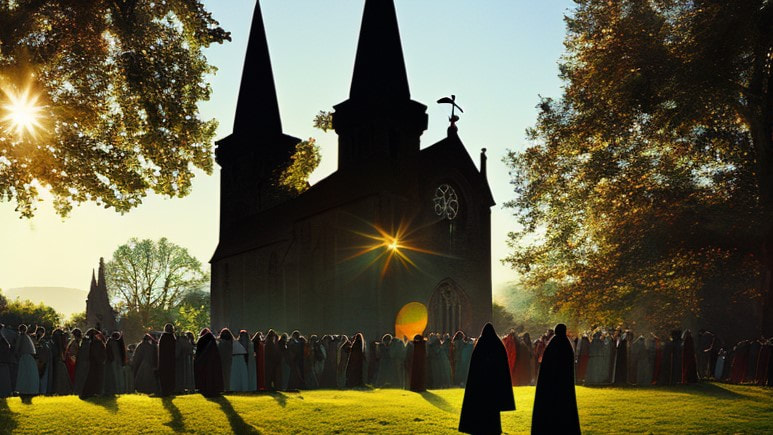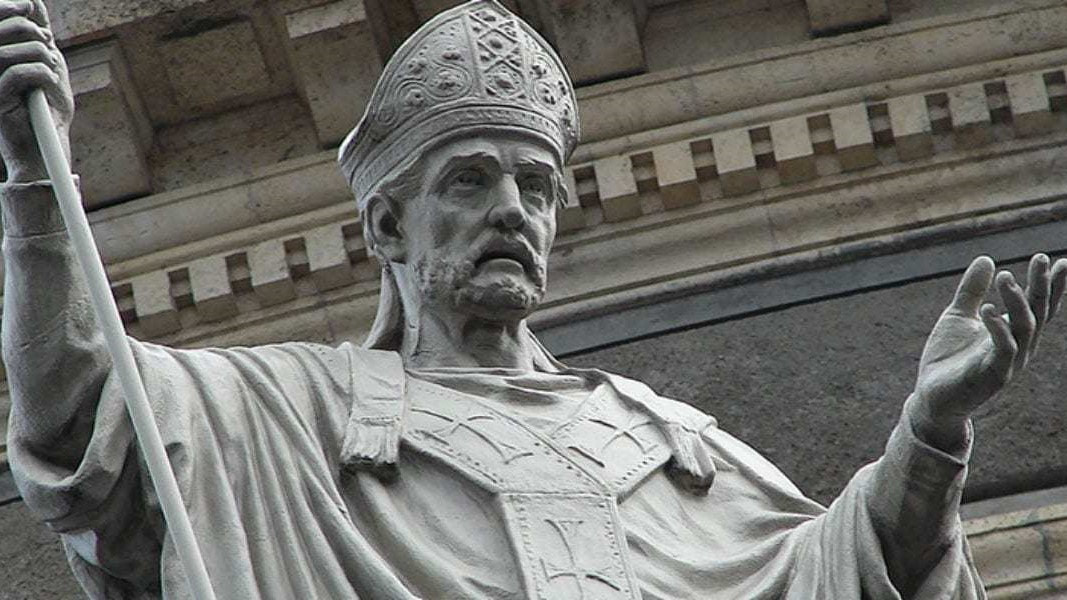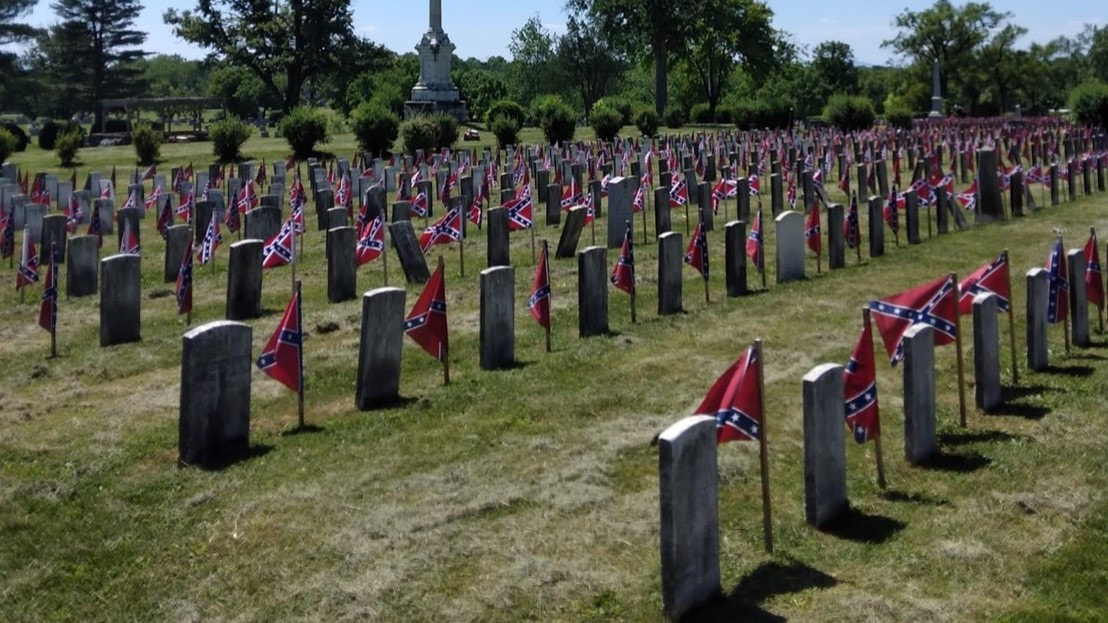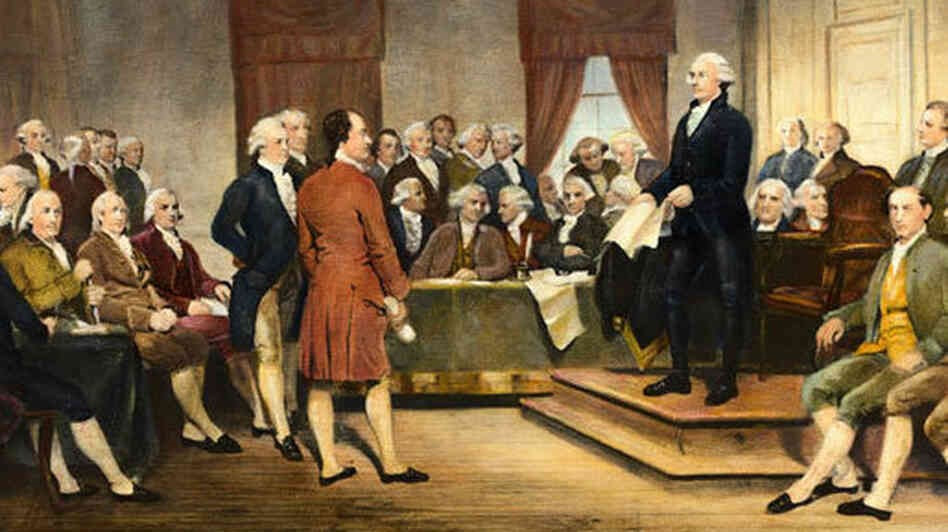|
There you stand Payne Murphy,
Beneath the thick bough of an ancient oak, With Allyson, the answer To your heart’s yearning, Glowing beautifully in the late evening sun, As a bride shall do. But in that holy moment, The two of you before the minister, Your own Uncle Boyd, Transformed in a mystery From an individual man and woman Into husband and wife – One flesh – in Jesus Christ, There beside you also stand The souls of Percy Murphy, Raiford, James, many forebears Of our family, looking with hope and joy Upon their offspring, Now growing to maturity. The future rests upon your shoulders, And upon all the youthful generation – The future of our family, the future of the Church, The future of the Southern people. October is the time of nature’s waning; Leaves grow sere and shadows lengthen. But in the Grace of a wedding, This law is overturned, As renewal enters the world: A new branch of the family tree emerges, Formed of P. M. and Allyson Fife, And our eyes look with longing For the fruit that it will bear.
1 Comment
AG Jeff Landry made his final appeal to Louisiana’s voters on Oct. 12th in the campaign for governor (which he subsequently won on Oct. 14th). In short, it could be summed up as ‘Louisiana ought to be great.’ In his own words:
We fully supported Mr. Landry for governor, believing that he has the right mix of experience and temperament, the right view of State sovereignty vis-à-vis the federal government, etc., to bring some beneficial changes to Louisiana. However, his words in this last appeal of his leave us concerned, for we have seen nearly this same kind of campaign unfold amongst our cousins in France under Charles de Gaulle. Now, General de Gaulle was an extraordinarily gifted leader. He nearly single-handedly kept the nation of France alive at times during WWII. After the end of the war, France lay prostrate, exhausted and dispirited. And again de Gaulle raised her up. He entered politics with the aim of making France a renowned country once again, politically stable, economically prosperous, and a prominent player in world politics. And he achieved a measure of success in those things – influential in Africa, rejecting complete subordination to NATO, protecting French interests in a European commonwealth – as well as giving France a new constitution that stabilized her political life and a reinvigorated economy. But once de Gaulle retired from politics, most of his achievements unraveled quite rapidly. Socialism/Leftism became the dominant ideology in the succeeding decades, remaining so today, with all its caustic attendants – open borders, hatred of the native culture, an oppressively large government, etc. When political leaders fail to raise the eyes of their peoples above the horizon of the earth, they doom them to precisely the kind of materialistic nihilism that France has fallen into. Politics is not an end in itself. Politics, like everything else, is a waysign, pointing us to the ultimate reality, to God. When we turn our eyes from Him, exchanging the infinite, uncreated God for some limited, created thing as the ultimate good, we bring trouble upon ourselves. Gen. de Gaulle had a wonderful opportunity, given his many talents, to rouse his people to true greatness, that is, to Christian holiness. But he failed to do so, and France has suffered much because of his failure. AG Landry, if he is not careful, is poised to repeat the mistake of de Gaulle. His final appeal is bereft of any mention of God, Christ, Church, etc.; it is concerned only with a worldly kind of greatness. But worldly greatness satisfies people for only a short time; then the spiritual hunger for something deeper awakens, and if it does not find Christ, people will try to satisfy it in all kinds of ways, many of them harmful – cults, drugs, crime, alcohol, suicide, overeating, endless social media use, etc. Louisiana is already experiencing many of these. Less crime, more economic opportunity, and better education will help to a degree, but not for long. Louisianans desperately need to be reacquainted with the exhilarating quest for holiness, and, once again, it is a French kinsman who provides a helpful illustration for us, St. Martin of Tours (+397 A.D.), the Patron Saint of France. Even a brief look at his life will show us the kinds of meaningful encounters that await those who seek after God sincerely and using the right means (prayer, fasting, the Divine Liturgy, etc.):
Worldly greatness is ephemeral. It quickly dissolves into nothingness. But holiness makes things immortal. Ten, twenty, fifty years from now, no one will care about our NFL stars and their statistics; no one will care about our GDP output. But generation after generation will continue to be in awe of the architecture of an abbey like Mont St. Michel off the coast of Normandy; they will continue to be drawn to the otherworldly beauty of illuminated manuscripts like the Lindisfarne Gospels; they will continue to seek consolation from the relics of the saints, which remain incorrupt and miracle-working because of the Grace of God that dwells within them. St. John Maximovitch (+1966), a saint who touched most of the world in some way, a saint everyone should know at least a little bit about, shows us how holiness overturns the normal working of the laws of death and decay. His holy relics were uncovered in 1993 in San Francisco, 27 years after his blessed repose:
We are grateful to God for the Landry victory on the 14th. It is critical, however, for Mr. Landry, State legislators, school board members, and for all the rest of us here in Dixie – both those in government and those outside of it – to remember that unless a political vision and agenda are linked to a higher spiritual reality, it will all be for naught. Worldly glory and achievements fade and wither like the grass in August, but deeds done for love of God and neighbor, deeds infused with the holy Grace of God, last forever.
Or, to say it more plainly, a holy Dixie is an immortal Dixie. Mr. Mark Atkins’s essay of 26 Sept. 2023, ‘What Is the South? What Is Dixie?,’ contains many fine passages, which is not unusual for things written by him. There is one that is cause for concern, however:
The land is undoubtedly an important factor in defining Southernness, but this passage makes something more of it than it ought to. The land in this telling has been transformed into some kind of dark, brooding deity that we must struggle with to receive a blessing, and along with the blessing, wounds. Mr. Atkins has retold the story of Jacob wrestling with God, replacing Jacob with Dixie and God with Land:
Further, it is ultimately not something external that we struggle with (the land), but something internal, sin. That is to say, the sins of men and women are the cause of the rebellion of the creation against mankind. When sinfulness is quelled in man, then harmony between them is restored. There are numerous instances of this throughout Church history in the lives of her saints. We will look at only a couple, for the sake of brevity, from the life of St. Cuthbert of Lindisfarne (+687) by another English saint, St. Bede of Wearmouth-Jarrow Monastery (+735). In his Ecclesiastical History of the English People, St. Bede writes,
Now, supposing a land full of Christian holiness in which there is little struggle with the land, would that people be bereft of a rich culture because of that absence? Certainly not! But what would be the source of culture in such a place? Just what it has been in every other place – the religion of the people, the Christian Faith. The country of Georgia, which we have mentioned before in some past essays, is a wonderful testimony to the culture-building nature of Christianity. Georgia was baptized into the Orthodox Church under the holy King Mirian in the 4th century, about the year 324 A. D.; she has not departed from the Church despite numerous brutal assaults upon her by the enemies of Christ. During St. Mirian’s reign, we see a Christian culture in its early formation:
As Southerners, we adore the land of Dixie, which provides us our sustenance, in which rest the bodies of our departed forefathers, from which grow our beautiful live oaks, white oaks, azaleas, and so many others, upon which gallop our half-mythical horses. The theme of land appears over and over again in our poems, in speeches, etc. But let us not claim more for it than we ought. True and lasting culture is born from worship of the Holy Trinity, the same Holy Trinity that King Mirian enjoined his son to adore – not Mr. Atkins’s trinity of family, People, and Land, but rather the Father, and the Son, and the Holy Ghost. It is He Who sustains and protects and enriches a Christian people’s culture, if they are willing to co-operate with Him, as the histories of Georgia and other Christian countries attest. The land will always be a large part of that culture, but we must be wary of taking a part and making it into the whole.
The White House on the Potomac, The portal to power, wealth, and fame – To wield its dark demonic forces Innocence is lost and the blood of man is shed; Malicious lies are told, Allegiance is bought and sold, Deceptive arts unfold. Your hope does not lie there, Southern man, In demagogues making a noisy scene, But in the glittering white house – The church of Candida Casa – Of Blessèd Ninian in Whithorn, Nestled on Galloway’s bay, Built by the hands of the saint, Who lived and prayed in a little cave. The Southern heart, aching for a noble, loving father, Will not find him amongst the greedy gangsters And the sham showmen of DC, But rather in that royal-born Briton, St. Ninian, who put aside crown and kingdom To bring the Good Tidings of Jesus Christ To a branch of Dixie’s kin, the warring Scots; Who nourished them with preaching, Sacraments, and his prayers, And who will tenderly guide us, And work wonders for us, If we will entreat our Elder, As a child would his father. Exile from one’s homeland can cause overwhelming grief to flood over him, a condition illustrated poignantly in the familiar Psalm 137, which begins with the words, ‘By the rivers of Babylon, there we sat down, yea, we wept, when we remembered Zion.’ However, internal exile gives rise perhaps to even sharper pains, as these exiles must stand by and watch as piece after piece of their tradition is destroyed before their eyes. Internal exile is the situation of traditional Southerners today. And though there are differences between internal and external exile, they are sufficiently similar that Dixie can draw wisdom from the experiences of those who have suffered external exile. Two especially superb examples of Christians suffering patiently and joyfully despite their exile come to us from the early 5th century: St. John Chrysostom and St. Olympias. St. John is one of the finest pastors the Church has ever known. His surname, Chrysostom, means ‘golden tongue’, a name given to him for the excellence of his many sermons. He was exiled from Constantinople by the God-hating rulers of his day who falsely accused him of various infractions. St. Olympias was born into a well-to-do family, but devoted her life to God after her betrothed died. She became a deaconess in the great cathedral of Hagia Sophia under St. John and was sent into exile because of her loyalty to her godly pastor. Many letters of these two to one another have survived to our day, and they offer a wealth of helpful advice on how Southerners can deal with our current woes. In one letter St. John helps us put suffering in its proper perspective. It is in fact something that makes up the very nature of the Church:
Suffering joyfully, without complaint, because of our trust in God is, furthermore, a great virtue. He writes to St. Olympias many moving words about this:
The South can find the will to endure by meditating on the lives of the martyrs and confessors who have gone before us:
And while we are being buffeted by the waves of heavy trials, in order to avoid being crushed against the shoals of despair, it is imperative to remember that God’s love governs the universe:
That same love directs the fate of Dixie, too. And, in a passage reminiscent of General Lee’s on hope in God’s providence, St. John tells us to trust God with the final result of our struggle for an independent, Christian Southland: ‘Therefore, my friend, wait for the final outcome. For all things will certainly turn out, whether in this life or the life to come. In every circumstance, yield to the incomprehensibility of God’s providence.’ Yet, however things turn out for the South, we must praise God, for His ways are beyond searching out:
May our Loving Lord, Jesus Christ, allow the South to achieve all her godly goals, through the prayers of the righteous sufferers, St. John and St. Olympias! Note: All quotes from St. John are from this essay by Mr. Christopher Hall.
When her stomach is unsettled,
Momma must stay at home. When Summer issues his stern command, Then we will swelter in hot weather. When one grandson arrives, He must walk the boundaries Of the property of the camp, Greeting the young trees And mourning the ones that have fallen. When feet approach the pond, Then a fishing pole will be in the hand. When the call to bless the food and family comes, Then the time for talk will cease. When the ladies turn a camera toward you, You had better stand and smile. When little Lennon stands before you with her bike, Then someone will push her round, Whether Daddy Kyle or Granny Sug or young Cousin Cooper. When our patriarch Raiford decreed Long ago the gathering of the Walton kin to meet Once a year, then most joyfully We obey, in flood or frost or scorching heat. 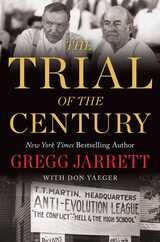 The United States are often presented as ‘one nation’, but that is far from the reality. One of the most exemplary of the Vanderbilt Agrarians, Donald Davidson, even spoke of a cultural ‘cold Civil War’ that began between the North and the South after WWI drew to a close (Southern Writers in the Modern World, U of Georgia Press, Athens, Ga., 1958, p. 34). The latest instance of this propaganda war against the South is Fox News journalist Greg Jarrett’s new book Trial of the Century, which rehashes the events of the John Scopes trial in Dayton, Tennessee, in 1925. His central claim is that Tennessee’s law against the teaching of evolution was an evil restriction upon the sacred right of freedom of speech. The rather unmistakable message that emanates from this is that laws upholding Christianity are bad; the untrammeled ‘free exchange of ideas’ is much better. Southerners should recognize his book for the attack on their Christian culture that it is. Prof. Davidson and the other Agrarians recognized the Scopes trial itself as such. Prof. Davidson describes windbags like Mr. Jarrett as ‘vain-minded modernists, all resolved to define God as science and to give the theory of evolution the status of quasi-religious dogma’ (Southern Writers, p. 40). He adds, ‘ . . . the Dayton episode dramatized, more ominously than any other event easily could, how difficult it was to be a Southerner in the twentieth century . . . . It was horrifying to see the cause of liberal education argued in a Tennessee court by a famous agnostic lawyer from Illinois named Clarence Darrow. It was still more horrifying—and frightening—to realize that the South was being exposed to large scale public detraction and did not know or much care how to answer’ (Ibid.). Hopefully Southerners will know and care how to answer this reprise of the Scopes trial that Mr. Jarrett is trying gin up. We can start by learning how the Southern Agrarians reacted to the Scopes trial. John Crowe Ransom became a defender of traditional religion: ‘John Ransom astonished his campus friends at Vanderbilt by openly challenging the modernist position and defending Fundamentalism in religion. I recall a tense scene on the third floor of Calhoun Hall at Vanderbilt during which Ransom, more excited than I had ever seen him, opposed Dr. Edwin Mims in vigorous argument over the issues raised at Dayton. Out of the bold and somewhat grim conviction of such moments, I should guess, grew the exacting study and thought that went into the composition of Ransom’s great book about science and religion, God Without Thunder: An Unorthodox Defense of Orthodoxy’ (Ibid., p. 41). Prof. Davidson wrote searing lines of poetry warning about the idolatrous worship of science. These are from ‘Fire on Belmont Street’:
Prof. Richard Weaver, a later Southern Agrarian, explained the wisdom, in his essay ‘The Older Religiousness of the South’, of relying on unchanging divine revelation rather than mutable scientific theories. This was not written specifically in response to Dayton as were the afore-mentioned, but it seems likely to have played a role in its creation:
‘Reverence for the “word of God” is a highly important aspect of Southern religious orthodoxy. Modern discussions of fundamentalism usually overlook the fact that belief in a revealed knowledge is the essence of religion in its older sense. The necessity of having some form of knowledge that will stand above the welter of earthly change and bear witness that God is superior to accident led Thomas Aquinas to establish his famous dichotomy, which teaches, briefly, that whereas some things may be learned through investigation and the exercise of reasoning powers, others must be given or “revealed” by God. Man cannot live under a settled dispensation if the postulates of his existence must be continually revised in accordance with knowledge furnished by a nature filled with contingencies. . . . It is therefore imperative in the eyes of the older religionists that man have for guidance in this life a body of knowledge to which the facts of natural discovery are either subordinate or irrelevant. This body is the “rock of ages,” firm in the vast sea of human passion and error. . . If moral philosophy must wait upon natural philosophy, all moral judgments become temporary, relative, and lacking in those sanctions which alone make them effective, as the more perspicacious Southern theologians pointed out’ (The Confederate South, 1865-1910; A Study in the Survival of a Mind and a Culture, LSU Dissertation, 1943, pgs. 89-90. Published by ProQuest LLC, Ann Arbor, Mich., 2015. Now available as The Southern Tradition at Bay.). This Southern intuition about the instability of science has been proven right once again, in a new analysis of Darwinian evolution no less. When Prof. Weaver did address the Scopes trial directly, he found that, contrary to Mr. Jarrett, the result of the trial was not a ‘sweeping victory’ for science, free speech, civilization, etc. Rather, ‘ . . . science received, in the popular estimation, a check in the trial but a moral victory, and this only led to more misunderstanding of the province of science in human affairs. The law of the State of Tennessee won a victory which was regarded as pyrrhic because it was generally felt to have made the law and the lawmakers look foolish. This also was a disservice to the common weal’ (The Ethics of Rhetoric, Hermagoras Press, Davis, Cal., 1985, pgs. 53-4). From the strictly Christian point of view, many holy elders have also appeared since Darwin’s time to warn us about the falseness and the destructive effects of his theory of evolution. We will quote only one, St. Theophan the Recluse (+1894), but these warnings could easily be multiplied: ‘People have suddenly had a thought and have started to write about preserving faith. But they don’t want to block the source of unbelief. This source is the spread of the teaching that the world formed by itself, according to which there is no need for God and the soul does not exist--it’s all atoms and chemistry, nothing more. This is being preached at [university] rostrums and in literature. He who breathes these fumes is inescapably stupefied, and loses his sense and faith. . . . Until these books are destroyed; until professors and literary men are forced not only not to hold to this theory, but even to demolish it—until then—faithlessness will grow and grow, and with it, self-will and the destruction of the present government. That’s the way the French Revolution went’ (Fr. Seraphim Rose, Genesis, Creation, and Early Man: The Orthodox Christian Vision, 2nd edn., Hieromonk Damascene, edr., St. Herman of Alaska Brotherhood, Platina, Cal., 2011, p. 792). From all of these sources and others, Dixie may draw ideas for how to challenge this renewed attack on the Biblical account of creation that she has consistently defended. In the near term, though, we ought to declare quite forthrightly to Mr. Jarrett that we simply don’t need his book around here at the South. We would be just as pleased if he threw it into the pit of hell where its celebrated atheistic evolution originated. Freedom needs limits to be enjoyed properly: Southerners, by and large, want only the freedoms compatible with life in Christ; Mr. Jarrett wishes for us to accept a more liberal freedom that would make living that kind of life impossible. And while we’re on this subject, isn’t it about time for the South to form her own news network? With the ease of recording videos and with the growing number of sharp Southern commentators, could we not produce at least a weekly show presenting news stories from the traditional Southern perspective? Fox News obviously has a high degree of disdain for Dixie and her Christian culture – from the South-slandering Victor Davis Hanson to Brett Baier’s book with its slobbering approval of General Grant to the ‘conservative transgender’ commentator Bruce Jenner. The positive ramifications of a Dixie-centric news/commentary channel for the South would likely be many. The South has not surrendered completely to Yankee/globalist/atheist cultural domination, so one may still find respect for the dead among our people – folks stopping their vehicles on the side of the road when a funeral procession drives past; handing down old sayings, tools, letters, furniture, and other heirlooms to the newer generations; celebrating the Memorial Days of fallen Confederate soldiers, etc. This continual act of remembering and honoring the foregoing generations helps keep a people from disintegrating and dying. Mr. Mark Atkins expressed this in a recent essay when he said,
It is essential for Dixie’s survival to keep these intergenerational links strong, but more than a mental acknowledgment of that truth is necessary. It must be incarnated, lived, practiced year after year. And there is a day, the Day of Rejoicing, the second Tuesday after Easter, that pulls together these varying strands of individual and collective remembrance of the departed, and unites them in a beautiful way. The Orthodox archpriest Father Artemy Vladimirov describes some of the basic aspects for us:
He speaks further of how this celebration ties the generations together:
Fulfilling this duty of ours, recalling our own Southern mothers and fathers, statesmen, soldiers, explorers, writers, Sunday School teachers, those who died during the Reconstruction occupation, and so forth and praying for them, we will receive a very precious gift – ‘the moral rebirth of the fatherland’:
But if we fail to honor our departed Southern forefathers and mothers, we will become depraved, demonic:
Knowing and loving our Christian ancestors, as Fr Artemy says, will extinguish the fires of Revolution; but denigrating and erasing their memory will most certainly ignite and feed it. Mr Rod Dreher is rather clear on this point:
If we here in Dixie, we who still love her, will unite and celebrate this Day of Rejoicing, we may be assured that the Southern remnant will be strengthened and blessed by God. And we may also find that some of our wayward Southern brothers and sisters, those disappointed and disillusioned by Americanism, communism, BLMism, technological progress, or what have you, will rejoin us in Dixie’s gracious and welcoming Big House, for authentic Christian tradition, shining with the Light of Truth, will attract those to it who are no longer blinded by their devotion to idols.
Just as it did in 1865, Appomattox Day (the day when the South became a conquered colony of DC, a day that should be remembered by Southerners with mourning and fasting and prayer each year) will fall on Palm Sunday in 2023 – April 9th (following the Orthodox Church’s dating; the Protestants and Roman Catholics will be celebrating the Resurrection of the Lord Jesus Christ on that day). Because of this conjunction of the days, it is fitting to reflect once again on the narrative surrounding this War – its causes, its effects, the people and issues involved. Unfortunately, prominent conservatives continue to extol President Lincoln as the embodiment of a just and far-sighted political leader. Sohrab Ahmari, for instance, is in agreement with a new documentary ‘that Lincoln is the ideal thinker-practitioner of the American constitutional tradition’. The tradition in Mr. Ahmari’s and his fellow-travelers’ view is that the federal government is justified in trampling the sovereignty of the States to eradicate what it views as moral evils, constitutional limits and other niceties notwithstanding. The Southern historian Rod O’Barr, who has written some excellent essays at the Abbeville Institute lately, sees lots of problems in the Lincoln-as-crusading-anti-slavery-hero narrative. In reviewing the work of Dr. James McPherson, he writes,
Such revelations make it possible to discern the real cause behind the North’s war against the South:
The conquest of the South by the Yankees stripped the limited government façade from DC, destroyed the decentralizing inertia left from the era of the Articles of Confederation, with the devastating consequences still unfolding and compounding today:
Mr. O’Barr’s work here and elsewhere is generally beyond reproach, but he is wrong in one particular: It was not ‘Lincoln’s war [that] created the very monster the Founders so rightly opposed.’ That monster was birthed in 1787 during the constitutional convention in Philadelphia. The Anti-Federalist writer Federal Farmer explains (via TJ Martinell):
It is clear that what was birthed in Philadelphia and reached its maturity in the violence of Lincoln’s war is precisely a consolidated, and not a federal, government. Mr. O’Barr continues:
Knowing this, the conservative/revivalist/traditionalist political strategy vis-à-vis DC going forward must include two goals. The short-term goal would be what it always has been: Elect the most capable and virtuous conservatives for federal office that we possibly can to limit the carnage of the DC leviathan (along with a liberal use of State and local nullification). But the long-term goal must be to refashion the consolidated government created by the Philadelphia constitution into one that is truly federal, one in which the States wield the bulk of the power again. That will mean no House of Representatives; senators appointed by the governors or State legislatures; no national bank; a federal budget that is dependent at least in part on money supplied voluntarily by each State; no national army (each State raising and maintaining her own); unanimous or near unanimous consent for measures to be passed; and so forth. And this is assuming that all the States will want to remain together in a union, an assumption that is looking less and less tenable as the cultural divide between States and regions continues to widen. Abortion-promoting, transgender-friendly, gun-free, carbon-neutral, covid-totalitarian States like California, Oregon, and Washington and States like Louisiana, Mississippi, and Alabama that embrace traditional Christian teachings about marriage and family, child murder, and human sexual duality, maintain some respect for human free will in health care decisions, understand that people need a way to defend themselves from attackers, and can keep a reasonable balance between scientific innovation and care for the creation – why keep States so radically opposed in their beliefs and folkways yoked together? Maybe we are not far removed, here at the South anyway, from being able to praise our heroes once again without the disapproving scowls and howls of the Woke in DC and the Blue States, praise that they likewise garnered from foreign countries, the poet Philip Stanhope Worsley of England among them, who concluded a poem with these lines:
Burning winds and scalding sands were your food And shelter in your final days of life. For your true confession of Christ, exile Is your reward from the Arian king. The Sahara, like a giant furnace, Swallows your Graces, Felix, Cyprian, And the four-thousand nine-hundred sixty-six Courageous African Christians Who voluntarily followed you. Sharp hunger, parched throats, burnt faces and feet – No apparent reprieve from your agony. ‘Renounce your faith and live!’ the skeptical Onlookers shout, not knowing that Christ’s Presence with His co-sufferers transforms Earthly pains into a foretaste of Heaven’s joys. In no way, then, do you grumble against God Or look back with longing to your cities. Your great company, instead, sings praises More fervently to the Sweetest Trinity, Though your voices crack and hearts are failing. Many angels led your pure souls upward Into the Heavenly City, whose light Is God Himself, while the silent desert dunes Gratefully received your holy bodies, Will be their tomb till Resurrection Day. The tortures of tomorrow’s Christians Will be much more subtle and refined, Yet harder to resist – the Enemy Has learned well the weaknesses of man. Withal, through union with Christ, Who is God, Unchanging, unconquerable – today, And yesterday, and forever, Amen – Through the gifts bestowed on us by your prayers, We, too, will endure faithfully to the end, And receive from Christ a crown of glory And a throne of honor, which we will offer Back to Him in thanksgiving and worship, Throughout the glorious, endless ages. |
AuthorWalt Garlington is a chemical engineer turned writer (and, when able, a planter). He makes his home in Louisiana and is editor of the 'Confiteri: A Southern Perspective' web site. Archives
July 2024
|


